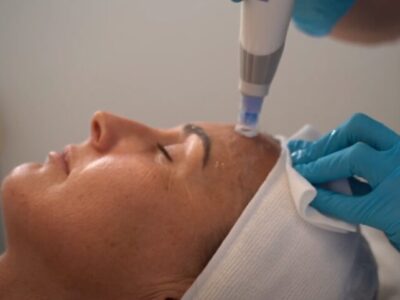
Cancer, a formidable adversary, affects millions of lives globally, transcending age, gender, and socioeconomic boundaries. In the realm of women’s health, certain cancers are more prevalent, necessitating heightened awareness, early detection, and informed decision-making. Let’s delve into the landscape of common cancers in women, shedding light on these conditions that require attention, understanding, and proactive healthcare.
- Breast Cancer
Breast cancer is the most diagnosed cancer among women worldwide, emphasizing the critical importance of regular breast self-exams, clinical breast exams, and mammograms. While the risk factors for breast cancer vary, age, family history, and certain genetic mutations can increase susceptibility. Early detection through screenings significantly improves treatment outcomes, making awareness and proactive healthcare essential in the fight against breast cancer. Physicians also offer breast cancer recurrence test to better prepare their patients.
- Ovarian Cancer
Ovarian cancer often presents subtle symptoms, making it challenging to detect in its early stages. The risk factors include age, family history, and inherited genetic mutations, emphasizing the importance of understanding one’s family health history. Routine pelvic exams, imaging studies, and certain blood tests can contribute to early detection, providing women with more treatment options and better outcomes.
- Uterine (Endometrial) Cancer
Uterine cancer, particularly endometrial cancer, affects the lining of the uterus. Obesity, hormonal imbalances, and a history of certain medical conditions such as diabetes can elevate the risk. Women experiencing abnormal uterine bleeding, pelvic pain, or changes in bowel or bladder habits should seek prompt medical attention. Regular gynecological check-ups, coupled with awareness of potential symptoms, contribute to the early detection of uterine cancer.
- Cervical Cancer
Cervical cancer is often linked to persistent infection with certain strains of the human papillomavirus (HPV). Regular Pap smears and HPV tests are crucial for early detection, allowing for timely intervention and treatment. Vaccination against HPV provides a preventive measure, highlighting the importance of both screenings and vaccination in the comprehensive approach to cervical cancer prevention.
- Colorectal Cancer
Colorectal cancer affects both men and women, with risk factors including age, family history, and certain lifestyle factors such as diet and physical activity. Regular screenings, including colonoscopies, are vital for early detection and prevention. Paying attention to digestive health, maintaining a balanced diet, and participating in routine screenings are essential components of a proactive approach to colorectal cancer in women.
- Lung Cancer
While lung cancer is commonly associated with smoking, it also affects non-smokers, and the risk is influenced by factors such as exposure to secondhand smoke, radon, and environmental pollutants. Symptoms may not manifest until the disease has progressed, underscoring the importance of early detection through imaging studies for those at risk. Smoking cessation and minimizing exposure to environmental risk factors are crucial in the prevention of lung cancer.
- Skin Cancer
Skin cancer, including melanoma, can affect women of all ages. Ultraviolet (UV) exposure, whether from the sun or artificial sources like tanning beds, is a significant risk factor. Regular skin checks, self-examinations, and the use of sun protection measures are essential for early detection and prevention. Emphasizing the importance of sun safety practices is integral to reducing the incidence of skin cancer in women.
Understanding the causes of common cancers is paramount to your health. Proactive healthcare, regular screenings, and lifestyle modifications contribute to early detection and prevention, empowering women to take charge of their well-being. By fostering awareness, advocating for regular check-ups, and embracing a holistic approach to health, women can equip themselves with the knowledge and resources needed to navigate the challenges posed by common cancers, ultimately promoting a healthier and more resilient future. For more information, check out the infographic below.











